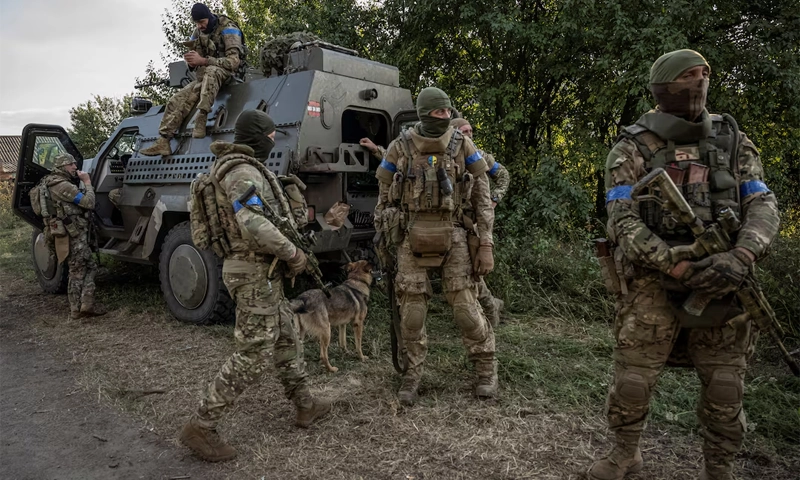- Web
- Yesterday
US should share ‘burden’ of arming Ukraine: EU

BRUSSELS: EU foreign affairs chief Kaja Kallas on Tuesday said the United States should “share the burden” of arming Ukraine, after President Donald Trump said Europe could buy American weaponry for Kyiv.
“If you promise to give the weapons, but say that it’s somebody else who is going to pay for it, it is not really given by you,” Kallas said after a meeting of EU foreign ministers in Brussels, AFP reported.
The remarks come amid the ongoing trade war triggered by the tariffs introduced by US President Donald Trump, which is threatening the historic transatlantic alliance.
Earlier on Monday, Danish Foreign Minister Lars Lokke Rasmussen said European Union member states find Trump’s 30 per cent tariffs threat “absolutely unacceptable”.
In a complete U-turn, Trump has agreed to rearm Ukraine, but said the United States, under the deal, will supply weapons to be paid for by NATO countries other than the US.
SLOVAKIA BLOCKS RUSSIAN SANCTIONS
On the other hand, Reuters quoted Kallas as saying that the European Union did not approve the 18th Russia sanctions package on Tuesday, after the meeting.
In this connection, she said she was “really sad” the sanctions did not get approved, but hopeful a deal will be reached on Wednesday, adding that the ball is in Slovakia’s court.
Slovakia has been blocking the EU’s latest sanctions package until its concerns are addressed over a separate EU proposal to phase out imports of Russian gas by January 1, 2028.
Earlier on Monday, sources told Reuters that all elements of the package had been agreed, although one member state still had a reservation about a proposed lower price cap on Russian oil.
Last month, the European Commission proposed the 18th package of sanctions against Russia for its invasion of Ukraine, aimed at Moscow’s energy revenue, its banks, and its military industry.
The new package proposes banning transactions with Russia’s Nord Stream gas pipelines, as well as banks that engage in sanctions circumvention.
It also proposes a floating price cap on Russian oil of 15 per cent below the average market price of crude in the previous three months, EU diplomats have said.





